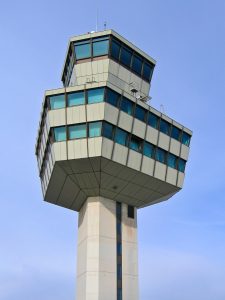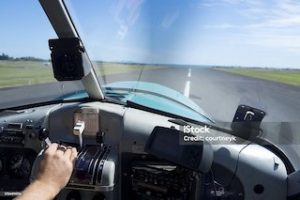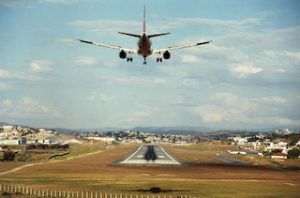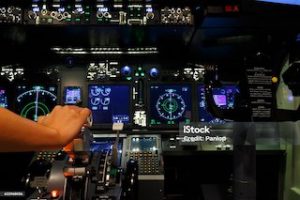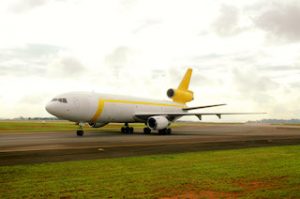Pilot Career Progression Through Aviation Academy
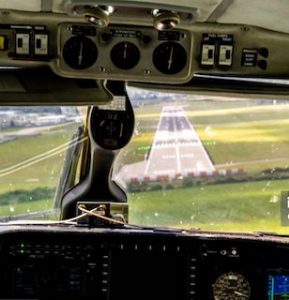 Aviation academies are pivotal in shaping the future of the aviation industry, providing essential training and education for a range of aviation careers. As air travel continues to expand globally, the need for skilled professionals in aviation becomes increasingly critical. This article delves into the various aspects of aviation academies, including their significance, programs offered, and the benefits of pursuing a career in aviation.
Aviation academies are pivotal in shaping the future of the aviation industry, providing essential training and education for a range of aviation careers. As air travel continues to expand globally, the need for skilled professionals in aviation becomes increasingly critical. This article delves into the various aspects of aviation academies, including their significance, programs offered, and the benefits of pursuing a career in aviation.
Aviation academy
An aviation academy is a specialized institution dedicated to training individuals for careers in the aviation sector. These academies offer various programs designed for aspiring pilots, aircraft maintenance engineers, air traffic controllers, and aviation managers. The curriculum typically combines theoretical education with practical training, ensuring that students are well-equipped for the challenges of the aviation industry.
The key features of aviation academies is their emphasis on hands-on experience. This approach allows students to apply what they learn in the classroom to real-world scenarios, making them job-ready upon graduation. Many aviation academies also offer state-of-the-art simulation technology and facilities, further enhancing the learning experience.
Why choose an aviation academy?
High demand for aviation professionals
The aviation industry is one of the fastest-growing sectors globally, with a consistent demand for trained professionals. According to industry forecasts, the need for pilots, maintenance engineers, and air traffic controllers is expected to rise significantly in the coming years. Enrolling in an aviation academy positions students to take advantage of this growing demand, ensuring a stable career path.
Comprehensive training programs
Aviation academies provide comprehensive training programs tailored to various career paths within the aviation sector. These programs cover essential topics such as aviation safety, aircraft systems, navigation, meteorology, and aviation regulations. By completing a structured curriculum, students gain a well-rounded understanding of the aviation industry.
Networking opportunities
Studying at an aviation academy offers students valuable networking opportunities. Many institutions have strong ties to airlines, aviation companies, and regulatory bodies, allowing students to connect with industry professionals. These relationships can be instrumental in securing internships and job placements after graduation.
Programs offered at aviation academies
Aviation academies offer a wide range of programs, catering to different interests and career goals. Here are some of the most common programs available:
Pilot training programs
Pilot training is one of the most sought-after programs at aviation academies. These programs are designed to take students from beginner to licensed pilot status. Students undergo rigorous flight training, learning essential skills such as navigation, communication, and emergency procedures. Many academies offer programs that lead to various pilot licenses, including private, commercial, and airline transport pilot licenses.
Aircraft maintenance engineering
For those interested in the technical side of aviation, aircraft maintenance engineering programs provide the necessary training to ensure aircraft safety and performance. Students learn about aircraft systems, troubleshooting, maintenance procedures, and regulatory compliance. Graduates are equipped to work in maintenance, repair, and operations roles within airlines and aviation companies.
Air traffic control training
Air traffic controllers play a crucial role in ensuring the safety and efficiency of air travel. Training programs in air traffic control focus on communication protocols, situational awareness, and decision-making under pressure. These programs prepare students to manage air traffic in busy airspace, ensuring safe operations.
Aviation management
Aviation management programs focus on the business and operational aspects of the aviation industry. Students learn about airline operations, airport management, finance, marketing, and strategic planning. Graduates of these programs often pursue careers in airline management, airport operations, and aviation consulting.
Specialised aviation programs
Many aviation academies offer specialized programs tailored to specific areas of interest. These may include courses in aviation safety, environmental management, aviation law, and emergency response. Specialized training can enhance a graduate’s employability by providing targeted skills relevant to the industry.
Technology in aviation education
The integration of technology in aviation training has transformed how students learn and practice their skills. Modern aviation academies utilize advanced flight simulators, allowing students to experience realistic flight scenarios without the risks associated with real-world flying. These simulators can replicate various aircraft types and flying conditions, giving students invaluable practice.
In addition to flight simulators, many aviation academies are adopting virtual and augmented reality (VR/AR) technologies. These innovations provide immersive learning experiences, enabling students to interact with aircraft systems and emergency scenarios in a controlled environment. This hands-on approach enhances understanding and retention of complex concepts.
Furthermore, the rise of online learning platforms has made aviation education more accessible. Many aviation academies now offer blended learning options, combining traditional classroom instruction with online coursework. This flexibility allows students to balance their studies with other commitments, expanding access to aviation education.
Accreditation
Accreditation is a critical factor when choosing an aviation academy. Accredited institutions meet specific educational standards set by regulatory bodies, ensuring the quality of their training programs. Graduates from accredited aviation academies are often preferred by employers, as these institutions are recognized for providing rigorous training and education.
In the United States, the Federal Aviation Administration (FAA) and other regulatory agencies set guidelines for aviation training. Many aviation academies work closely with these organizations to align their curricula with industry standards. This collaboration ensures that students receive the most relevant and up-to-date training available.
Career opportunities after graduation
Graduating from an aviation academy opens the door to numerous career opportunities across the aviation industry. Here are some of the most common career paths for graduates:
Pilot careers
For aspiring pilots, completing a pilot training program at an aviation academy can lead to various opportunities, including roles in commercial airlines, cargo transport, and private aviation. As the demand for pilots continues to grow, graduates can find rewarding careers with competitive salaries.
Aircraft maintenance engineering careers
Graduates from aircraft maintenance engineering programs can pursue careers as licensed aircraft maintenance engineers. These professionals are responsible for ensuring the safety and performance of aircraft, working for airlines, maintenance repair organisations, and government agencies.
Air traffic control careers
Air traffic controllers are essential for maintaining safe air travel. Graduates from air traffic control programs can find employment in control towers, terminal radar approach control facilities, and en route centers. The job is demanding but offers competitive salaries and benefits.
Aviation management careers
Aviation management graduates can pursue various roles within the aviation industry, including airline management, airport operations, and aviation consulting. These positions often involve overseeing operations, managing budgets, and implementing strategic initiatives.
Global impact of aviation academies
The influence of aviation academies extends beyond national borders. As the global aviation market continues to expand, countries around the world are establishing their own aviation training institutions. These academies cater to local needs while adhering to international training standards.
Regions with burgeoning aviation markets, such as Asia-Pacific and the Middle East, have seen significant growth in aviation academies. These institutions not only provide local talent to the industry but also foster international collaboration and knowledge sharing among aviation professionals.
Challenges facing aviation academies
Despite the significant role aviation academies play in training future professionals, they face several challenges. One of the primary concerns is the cost of aviation education. Training programs can be expensive, and prospective students may struggle to secure financing. Many aviation academies are working to offer scholarships and financial aid to alleviate this burden.
Additionally, the rapid pace of technological advancements presents challenges in curriculum development. Aviation academies must continuously update their programs to incorporate new technologies and practices. This requires ongoing investment in training resources, facilities, and instructor development.
Future of aviation academies
Looking ahead, aviation academies will continue to play a vital role in shaping the future of the aviation industry. As air travel demand increases and new technologies emerge, these institutions must adapt their training programs to meet the evolving needs of the industry.
The emphasis on sustainability and environmental responsibility is likely to influence future aviation training. Many aviation academies are beginning to incorporate sustainability practices into their curricula, preparing students to address the industry’s environmental challenges.
Furthermore, the increasing importance of soft skills, such as communication and teamwork, will continue to be a focus of aviation training. As the industry becomes more collaborative and interconnected, graduates must be equipped with the interpersonal skills needed to succeed in a dynamic environment.
Your journey begins at an aviation academy
In summary, aviation academies are essential institutions that provide the training and education needed for a successful career in aviation. With a wide range of programs, hands-on training, and strong industry connections, these academies offer students a pathway to fulfilling careers in a rapidly growing field.
Choosing to enroll in an aviation academy not only prepares you for the technical demands of the industry but also positions you to take advantage of the numerous opportunities available in the aviation sector. Whether your passion lies in flying, maintenance, air traffic control, or aviation management, the right aviation academy can set you on the path to success.
As you consider your options, remember that the aviation industry is constantly evolving, and staying informed about trends and advancements will be crucial in your career. Embrace the challenges and opportunities that come with pursuing a career in aviation, and take the first step by exploring the many aviation academies available to you today.

